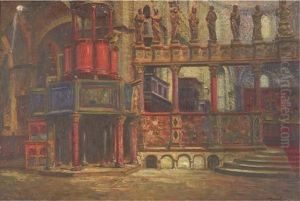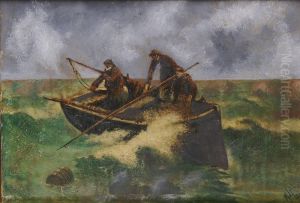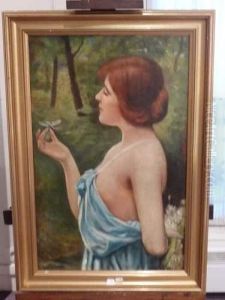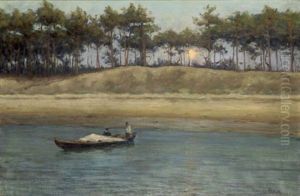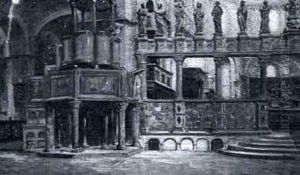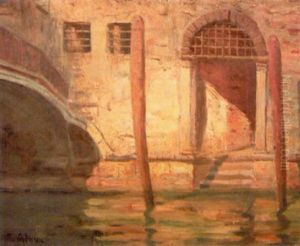Francois Alaux Paintings
François Alaux was a distinguished French artist, born in 1913 in Saint-Jean-de-Luz, a picturesque town in the Basque region of France. His early life was steeped in the rich cultural heritage of the Basque Country, which would later influence his artistic endeavors. Alaux was not only a painter but also excelled in the realms of engraving and scenography, showcasing a versatile talent that was recognized both in France and abroad.
Alaux embarked on his artistic journey at a young age, displaying a keen interest in the arts. He pursued his education in the field, honing his skills and developing a unique style that blended traditional techniques with modernist influences. Throughout his career, Alaux was known for his exceptional use of color and composition, elements that became hallmarks of his work. His paintings often depicted landscapes, scenes of daily life, and historical events, imbued with a sense of movement and vitality that captured the essence of his subjects.
During the 20th century, François Alaux's contributions to the art world were significant. He participated in numerous exhibitions, both solo and group, which helped to establish his reputation as a leading figure in French art. His works were celebrated for their originality and depth, earning him accolades and awards. Beyond painting and engraving, Alaux also made notable contributions to the world of theater, designing sets and costumes that were praised for their imaginative and innovative designs.
Despite his passing in 1989, François Alaux's legacy continues to be celebrated. His artworks are housed in several prestigious collections and museums, serving as a testament to his lasting impact on the art world. Alaux's dedication to his craft and his ability to capture the spirit of his time make him a significant figure in the history of 20th-century French art. His life and work remain a source of inspiration for artists and art lovers alike.
